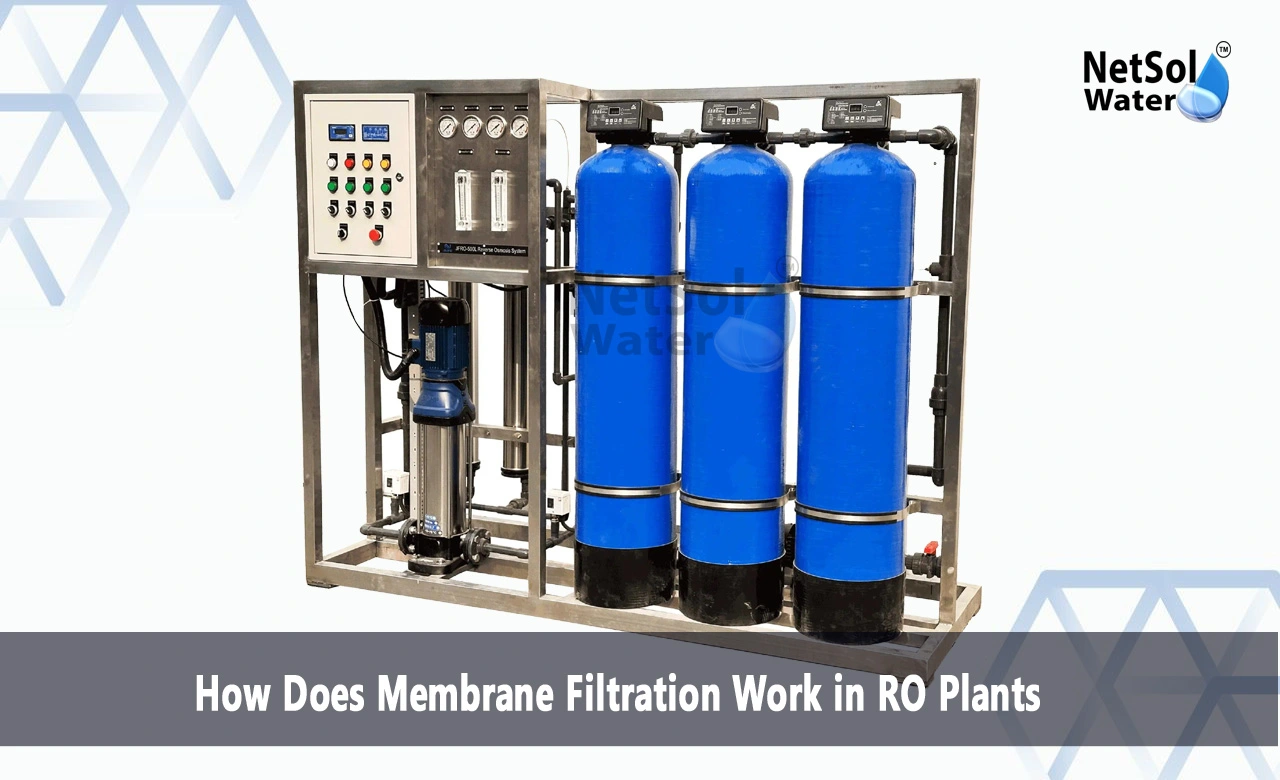How Does Membrane Filtration Work in RO Plants?
If you've ever utilized a water filter pitcher or faucet attachment, you've likely experienced filtration on a small scale. However, RO plants take this concept to a grand industrial level by utilizing advanced membrane technology to purify millions of gallons of water per day for communities, businesses, and industries. The process at the heart of these impressive RO plants is known as membrane filtration, and it truly is a remarkable phenomenon!
What is Membrane Filtration?
Membrane filtration involves pushing water through a very thin, semi-permeable membrane. These membranes have microscopic pores and surfaces treated to allow water molecules to pass through, while blocking unwanted minerals, salts, microbes and other contaminants. It's like a super-fine strainer or sieve but at the molecular level. In RO plants, the membrane does the heavy lifting of actually filtering and desalinating feed water to produce crystal clear, contaminant-free permeate water suitable for drinking, industrial processes, irrigation and more. Pumps, pipes, tanks and other equipment support the membrane filtration process, but the membranes themselves are the real stars.
How RO Membrane Filtration Works?
To overcome the natural tendency of water to flow from dilute to concentrated solutions, RO plants use incredibly high pressures up to 1,200 psi (83 bar) generated by massive pumps. This forces the feed water through the semi-permeable membranes in the reverse direction.
The polymer membrane surfaces have a pore structure much smaller than even a virus - around 0.0001 microns. Only water molecules can squeeze through these tiny holes, while dissolved salts, minerals and other contaminants get trapped on the feed side as concentrated brine.
Beyond just the physical sieving effect of the minuscule pores, RO membranes utilize electrostatic charge repulsion to improve rejection rates. Most contaminant particles carry a positive charge, while the membrane has a negative surface charge - causing them to be repelled away.
In RO plants, membrane elements are configured for tangential or crossflow filtration rather than dead-end. Feed water flows parallel to the membrane, helping sweep away accumulating particles and delaying fouling compared to flow directly perpendicular through the membrane.
What Factors Impact RO Filtration Success?
While that covers membrane filtration basics, optimising an RO plant's performance depends on several key variables:
Feed Water Salinity/Total Dissolved Solids (TDS)
As saltier or more concentrated feed water enters the plant, higher pressures are required to overcome increased osmotic pressure gradients across the membranes. Higher TDS reduces membrane flux rates.
Temperature Effects
Warming feed water temperatures improve permeate flux as molecules move faster. But warmer water also reduces salt rejection as diffusion rates rise.
Fouling and Scaling Potential
Over time, filtered particles cake onto membranes, forming fouling layers that restrict flow. Mineral scaling deposits also form, reducing porosity. Pretreatment helps manage this.
Conclusion:
By carefully monitoring and adjusting factors like operating pressures, scheduled cleaning cycles, membrane configurations, and concentrate stream management, RO plants maximise the output and efficiency of their membranes throughout their multi-year lifespan.So, in essence, RO membrane filtration is a remarkably simple yet powerful process leveraging the natural properties of semi-permeable materials combined with optimised process engineering.
Netsol Water is Greater Noida-based leading water & wastewater treatment plant manufacturer. We are industry's most demanding company based on client review and work quality. We are known as best commercial RO plant manufacturers, industrial RO plant manufacturer, sewage treatment plant manufacturer, Water Softener Plant Manufacturers and effluent treatment plant manufacturers. Apart from this 24x7 customer support is our USP. Call on +91-9650608473, or write us at enquiry@netsolwater.com for any support, inquiry or product-purchase related query.



